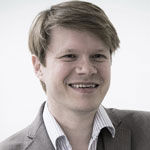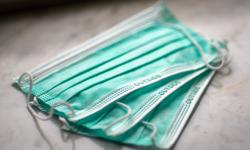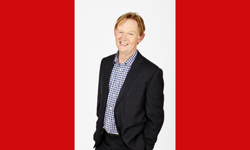The research showed that this was the view of 53% of the public and 65% of those in key positions.
The YouGov poll was carried out for a London Press Club debate, on Wednesday, on 'Business, Politics, Media: Who do you trust?'. A top panel chaired by journalist and broadcaster Anne McElvoy tackled the survey results and answered pointed questions from the sell-out crowd.
YouGov research director Oliver Rowe revealed the poll findings. He said that the firm's 'Opinion Formers' group of experts and leading figures and the general public both believed lack of trust was having an impact on the UK's economic growth.
He also said the two groups were much more in accord with their negative ratings of –13 and –9 on the impact of the media's coverage of politics, business and current affairs.
This contrasted however with the rankings of which jobs respondents trusted to tell the truth, where broadcast and broadsheet journalists were at the top, some way ahead of MPs, businessmen and tabloid journalists. In particular, BBC journalists were trusted by 31% of those polled, with ITV News in second place with 17%, followed by broadsheet journalists with 15% - a marked difference from those journalists on mid-market and tabloid titles, trusted by just 3% and 2% respectively.
The general lack of trust in business, political, and media institutions was not seen as entirely negative, with three quarters of the Opinion Formers and 57% of the public feeling that a degree of mistrust in those in power was healthy.
44% of the public feel that democratic process in the UK is breaking down, with 76% of Opinion Formers stating that the main result of this is a general disconnection from the political process. Increased cynicism about stories in the mainstream media, leading to disengagement with the news agenda, was cited as the main result of the low trust in that sector. For large businesses a 'them and us' view has blossomed, with the public now less likely to give them the benefit of the doubt when they get in trouble.
In terms of possible solutions to the lack of trust, 70% of Opinion Formers and 65% of the public said that politicians should rely less on spin and be more honest, with 67% of all respondents said that they should act with honesty, integrity and fairness to win back trust. For the media, both groups prioritised a focus on more accurate and balanced reporting. Increased transparency was much more of an issue for the public, with 53% compared to 30% of Opinion Formers, 62% of whom felt that raising levels of ethical behaviour was key. Large businesses were also advised by both groups to act with honesty, integrity and fairness, with 54% of Opinion Formers said that they should be more socially useful if they are to be more trusted.
The debate
The poll results led to the London Press Club panel discussing their respective profession's perceived trustworthiness. Former Labour spin doctor Damian McBride recalled that during the darkest days of the financial crisis, with the then prime minister's popularity at a new low, he was able to save one bit of good news for the end of the briefing: "Don't worry Gordon, more people blame Robert Preston than you" - an anecdote that earned a retweet from the BBC's economics editor during the debate.
Paulette Rowe, managing director of Barclaycard's Global Payment Acceptance division, revealed how her whole office cheered when polling indicated that bankers had risen above estate agents. Co-founder of campaigns firm Seven Hills Michael Hayman, citing his belief that the difference between a rat and a hamster was PR, argued that local councillors did not deserve the low trust ranking of +6.
Former Sunday Mirror editor and News of the World deputy Paul Connew disputed the idea that tabloid journalists would not be overly concerned at ranking so low: "Any media outlet needs a degree of public trust, even Rupert Murdoch isn't complacent."
Talk then turned to two figures from politics and business who consistently poll well in terms on public trust: UKIP leader Nigel Farage and Virgin founder Richard Branson. While many may disagree with Farage's policies the panel agreed that he, in contrast to the majority of Westminster, felt authentic. "The challenge for politicians today is, what is Nigel Farage doing right that you are doing wrong?" said McBride.
The issue of whether trust was truly so much lower than ever or just that factors like social media had accelerated things was discussed. "I don't think politicians and business leaders ever inherited trust, it must be earned," argued Hayman.
Last night's event marked the third collaboration between the Press Club and YouGov. Chairman Doug Wills commented: "After our previous events on investigative journalism and paywalls, we were delighted to team up once again with YouGov and a fantastic panel to debate this timely and poignant question.
"The results were an eye-opener. We should all take notice."












